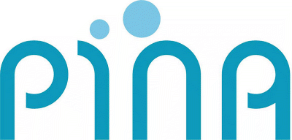Participate in our study “SocialGestures” – Project description:
In all human cultures, gestures and language are used to share information. At the same time, the person speaking provides information about themselves, for example accents indicate the cultural and geographical background of the person speaking. These aspects are already relevant in early childhood, as even babies and toddlers show a visual preference for people with the same mother tongue (Kinzler, Dupoux & Spelke, 2007). However, research to date has not looked at how the gestures that routinely accompany speech influence social judgement.
Therefore, this project analyses gestures together with speech in order to uncover the social preferences that result from the integration of multiple communicative cues.
In particular, a focus is placed on how children perceive the gestures of speakers in different social contexts and how these influence their behaviour. The project aims to improve understanding of the importance of gesture in human communication. The aim is to better emphasise the role of gestures in the development of prejudice and discrimination.
First, the differences in the gestures of adults depending on the type (child vs. adult) and presence (real vs. imagined) of the listeners are analysed in a cultural comparison (German vs. French).
In the next step, high-quality sets of stimulus videos will be developed for the first time that manipulate the background of the gesture (native vs. foreign) and the language (native vs. foreign). This will investigate how different combinations of gesture and language (both native, both foreign or mismatched) influence social preferences and social learning. This project will provide the first insights into the relationship between gestural communication and intergroup cognition and how this influence develops in early childhood.
To this end, the children’s reactions to the video stimuli are measured by means of eye tracking in the toddlers and by means of behavioural observation (selection of a person; imitation of a performance) in the nursery children.
The following questions in particular are being investigated as part of this project: Do toddlers and daycare centre children prefer native-speaking gesticulating persons as interaction and learning partners? Do German and French speakers differ in their use of gestures in pedagogical interactions with children?
Are you interested in taking part in our study and are between 18 and 30 years old? Then please register directly using the contact form below. We will then contact you promptly and arrange individual appointments with you.

